The 13 most groundbreaking queer TV and film moments of 2023
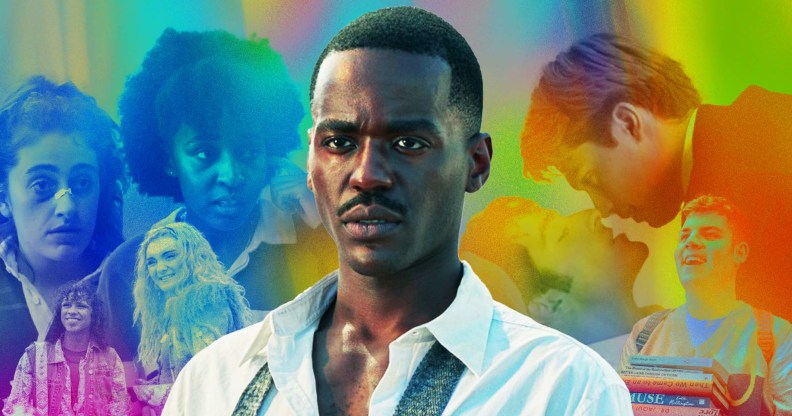
2023 has been a huge year for representation in TV and film. (Credit: Netflix, Amazon, BBC, Orion Pictures)
It seems like just a few short years ago that LGBTQ+ TV and film lovers had to beg, borrow and steal for a mere crumb of queer representation in their favourite shows.
In 2023 though, the community seemed to get it in spade loads. Not only did queer favourites, including Heartstopper, return, and LGBTQ+ characters finally become leads in films such as Knock at the Cabin, but there were numerous instances of representation being done in a way we had not seen before.
If you demand to see sweet, cheesy, or downright dumb queer, cinema, there was Red, White & Royal Blue and Bottoms. If it’s multi-faceted trans characters you desired, Sex Education, Doctor Who and Talk To Me delivered. And even if you were after visibility for gay men with a foot fetish, Fellow Travelers had you covered.
While 2023 was a brilliant year for LGBTQ+ people in film and TV, there’s still more work to be done obviously. But at least we finally seem to be headed in the right direction.
Here are our picks of the top groundbreaking moments on TV and at the cinema in the past 12 months.
Red, White & Royal Blue proved there’s space for gay, cheesy cinema
When Red, White & Royal Blue landed on Prime Video in August, the world – and by world, we mean a small but very vocal portion of the internet – exploded.
Starring Cinderella’s Nicholas Galitzine as a British prince and The Kissing Booth’s Taylor Zakhar Perez as the son of the US president, Red, White & Royal Blue followed their enemies-to-lovers fairy-tale romance in all its silly, saccharine beauty.
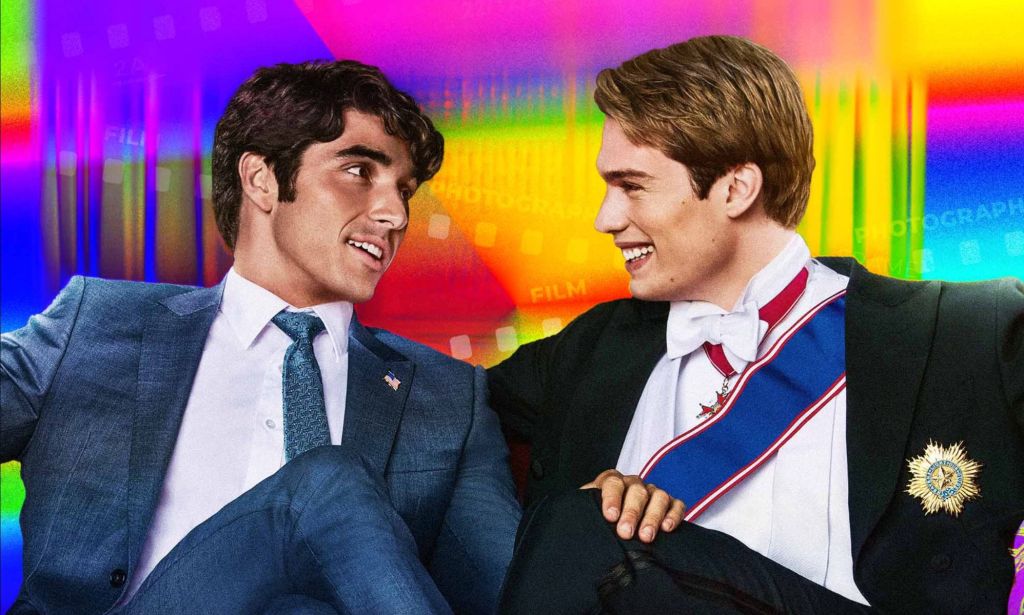
It helped that the film had an immense following before it was even released, thanks to the cult success of Casey McQuiston’s novel of the same, but the film adaptation grew legs of its own. It remained one of the most-watched films on Prime Video for weeks. Even our small home-town friends, who still use “gay” as a derogatory adjective, enjoyed it. That’s impressive.
Matthew López’s mushy movie showed us all that gay cinema can be cheesy as hell, but it can also be successful as hell.
Doctor Who became, to put it plainly, queer as f**k
Listen, we know Doctor Who has always been queer: from Pearl Mackie’s openly gay companion Bill Potts, to everyone’s favourite crime-fighting lesbian duo Madam Vastra and Jenny.
But with queer TV writing legend Russell T Davies back behind the wheel for the recent 60th anniversary specials, and the upcoming 14th season, Doctor Who became an all-out Pride festival.
Most notably, the long-running BBC sci-fi show saw queer Sex Education star Ncuti Gatwa takeover as the first out queer Black Doctor, while, in a brief return to the role, David Tennant quietly confirmed that even his iteration of the Time Lord was bisexual.
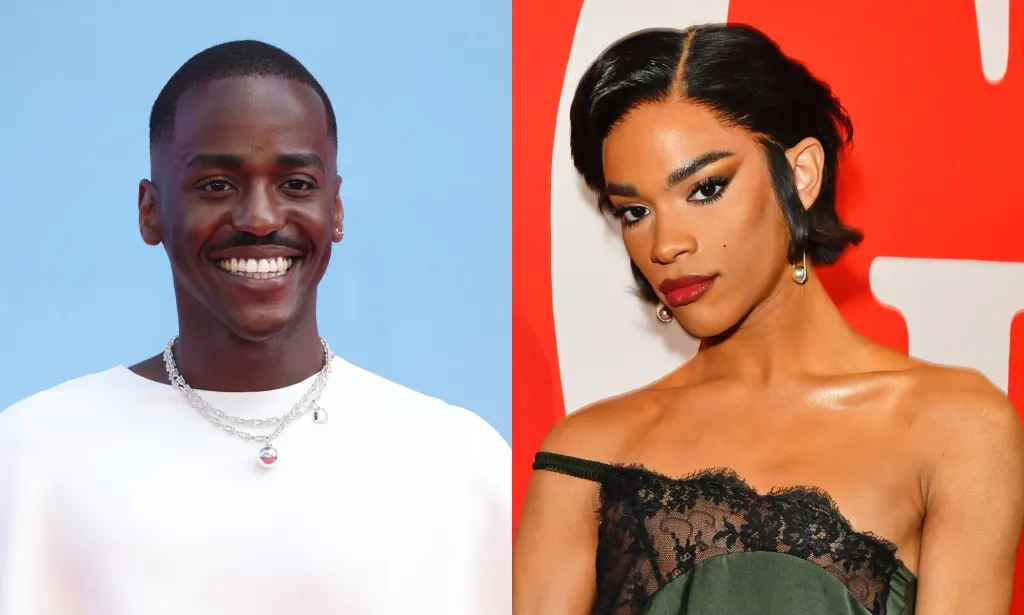
Heartstopper breakout star Yasmin Finney shone in the first anniversary episode, playing Rose Noble, the trans daughter of former companion Donna Noble. If that wasn’t enough, the entire episode’s pivotal plot was the very fact that Rose being trans saved the universe.
And with queer acting legends such as Miriam Margolyes, as The Meep, and Neil Patrick Harris, as The Toymaker, popping up, Doctor Who has become certified gay viewing.
Bottoms carved space for messy lesbian representation
Giving us a much-needed breather from films about queer trauma or gay coming-of-age, Emma Seligman’s riotous lesbian teen comedy Bottoms instead served up a hearty dose of sapphic stupidity.
Following loser lesbians PJ, played by Rachel Sennott, and Josie (Ayo Edebiri), Bottoms sees them accidentally start a fight club after knocking himbo footballer Jeff (Nicholas Galitzine) over with their car.
Setting up the fight club is to prevent them being expelled, but it’s also a ploy to get them closer to the school’s hot cheerleaders, Isabel (Havana Rose Liu) and Brittany (Kaia Gerber).
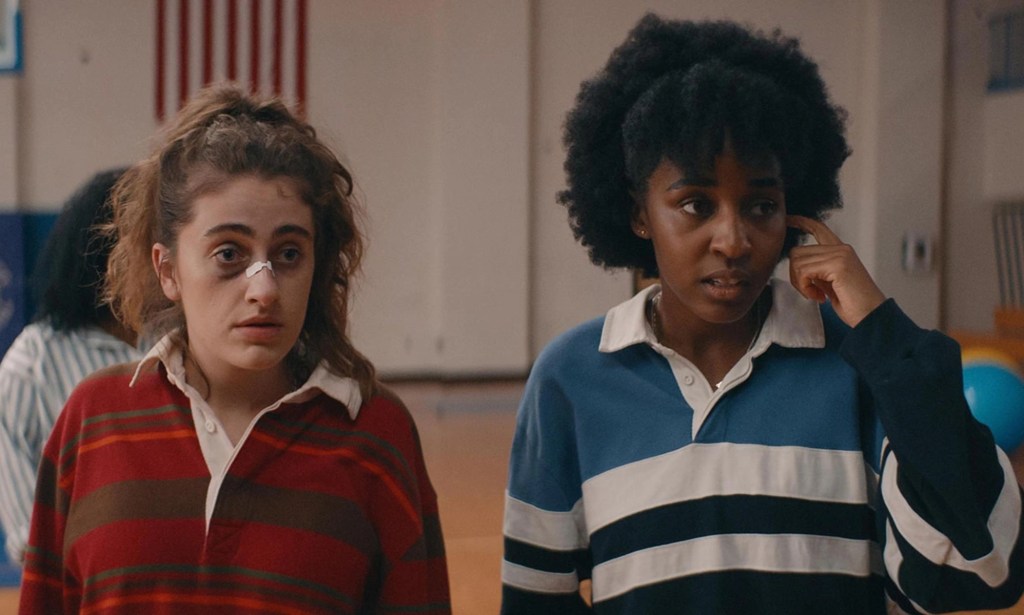
While we’d love to say it’s an honest depiction of high-school life for queer teen girls today, it’s not: they build a bomb, for goodness sake. This is whacky, horny and, frankly, stupid – in the best possible way.
I Kissed a Boy finally gave us our first gay dating series
In May, the BBC transported us to an Italian “masseria” – whatever that is – to watch 10 young gay men meet for the first time. And kiss before they’d even said a word to one another.
The following weeks on I Kissed a Boy brought heaps of drama, a love triangle or two, and one adorable romance between Dan and Ollie that looked set to stand the test of time.
Of course, this is a reality dating series, so none of the couples, not even Dan and Ollie, are still together. Booooo.
On the bright side, it did so well with the public that the BBC has now commissioned a lesbian spin-off in the form of I Kissed a Girl, coming in 2024.
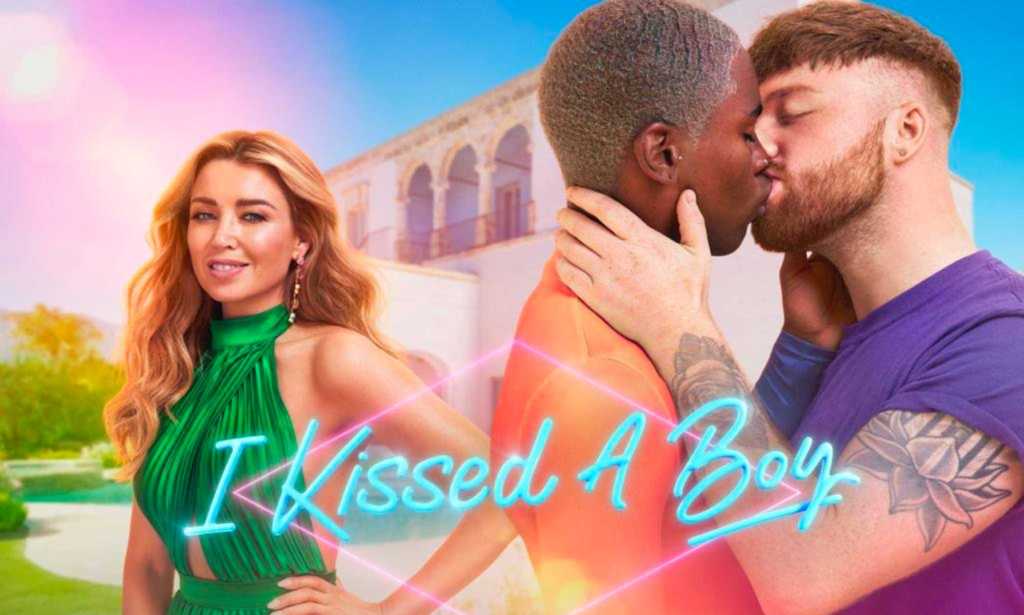
I Kissed a Boy wasn’t just great because of camp-as-tits host Dannii Minogue, the bop-stuffed soundtrack, or that steamy shower scene. It was genuinely groundbreaking TV, as the first exclusively gay dating on British screens. No wonder it won “screen moment of the year” at the PinkNews awards in October.
Passages gave us one of the most uncompromising gay sex scenes
This was the year of unashamed gay sex, as far as TV and film directors were concerned. Red, White & Royal Blue’s Henry and Alex could barely keep their hands off each other, while Fellow Travelers saw Jonathan Bailey and Matt Bomer leave nothing to the imagination, and then there was Passages.
In Ira Sachs’ romance drama, the jaw-droppingly narcissistic Tomas (Franz Rogowski) takes his boyfriend Martin (Ben Whishaw) and lover Agathe (Adèle Exarchopoulos) for a wild ride, promising the world to both of them.
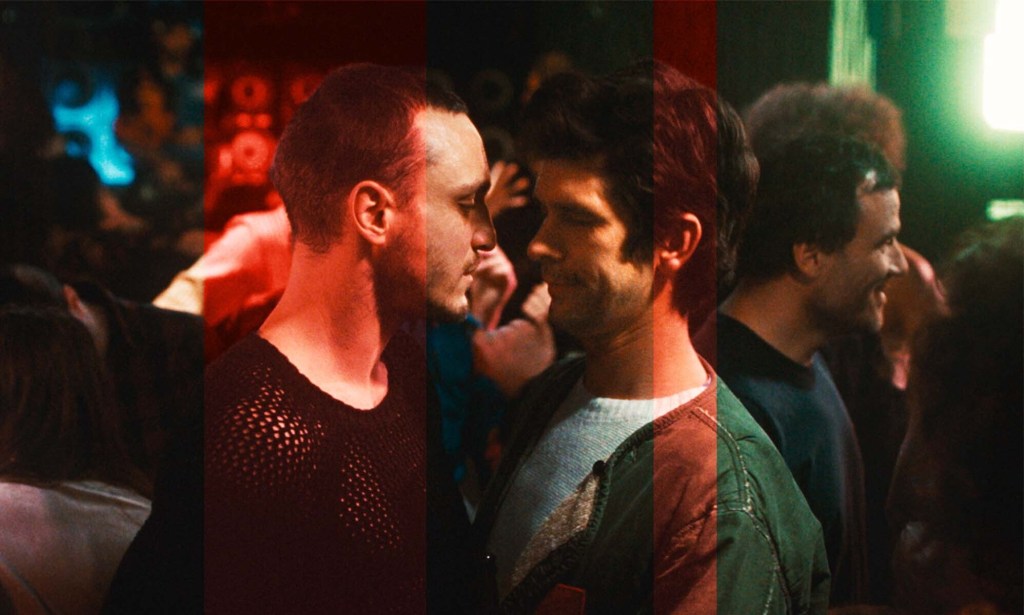
One of the film’s most notable scenes was when Martin and Tomas had intense sex, while a heart-broken Agathe wept next door. This wasn’t just any old sex scene, though – it was a long sex scene.
While it was brilliant to see queer sex depicted so frankly at the cinema, some people obviously didn’t seem to think so, because Passages received an NC-17 rating, a decision which Sachs branded “cultural censorship”.
The Last of Us did Frank and Bill’s story justice
Episode three of post-apocalyptic drama series The Last of Us swiftly became one of 2023’s best TV moments, just mere weeks into the year.
“Long Long Time”, after the Linda Ronstadt song, moved away from protagonists Ellie and Joel, instead tracing survivors Bill (Nick Offerman) and Frank (Murray Bartlett) across the 20 years of the apocalypse. After a tense first meeting, they begin a sweet romance, doing all they can to get through the cordyceps outbreak and remain together.
The episode ends with the pair growing older and Frank struggling to live with a degenerative disease, as Bill concocted a plan to keep them together for ever – with devastating consequences.
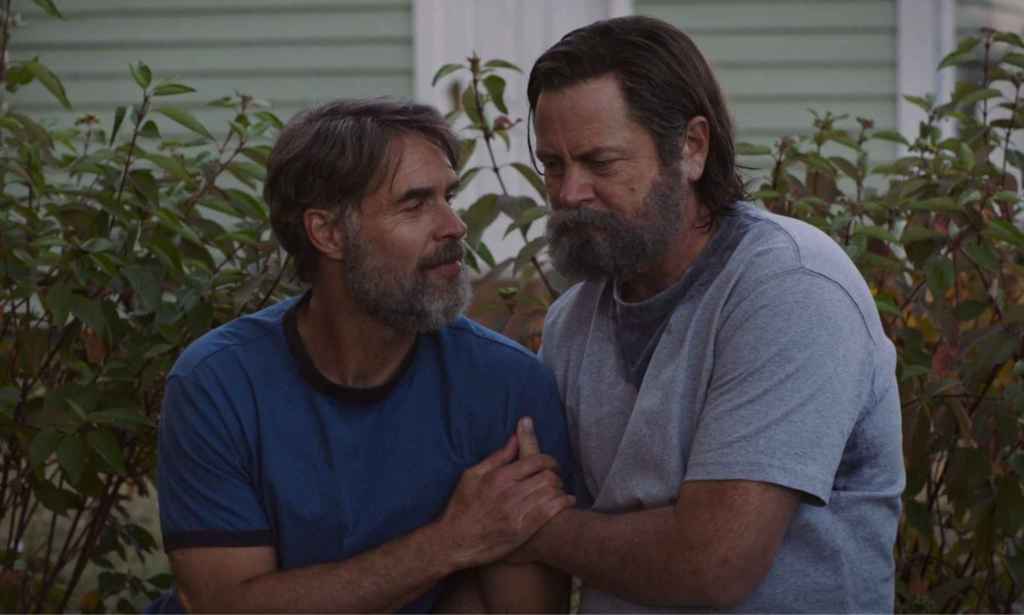
It was a truly moving piece of television, and the very heart of The Last of Us season one, proving that the show isn’t about killing zombies – it’s about the lengths we go to for human connection. Plus, it subverted the tired “bury your gays” trope, flipping the narrative and allowing Bill and Frank to choose their own ending.
The Last of Us gets a little bonus point too: for episode seven, which focused on the sweet-yet-doomed relationship between Ellie (Bella Ramsey) and Riley (Storm Reid). In season two, the former will find a new love interest, in a storyline that Ramsey “can’t wait” to get stuck into.
Trans representation took over big blockbuster cinema
In previous years, LGBTQ+ cinema-lovers were lucky if they were blessed with one instance of trans representation on screen. This year, it seemed as if transgender stars were taking over, with some of the biggest blockbuster movies putting them front and centre.
In the summer’s biggest movie event, Greta Gerwig’s Barbie, Transparent actress Hari Nef starred as “Flat feet” screaming Doctor Barbie.
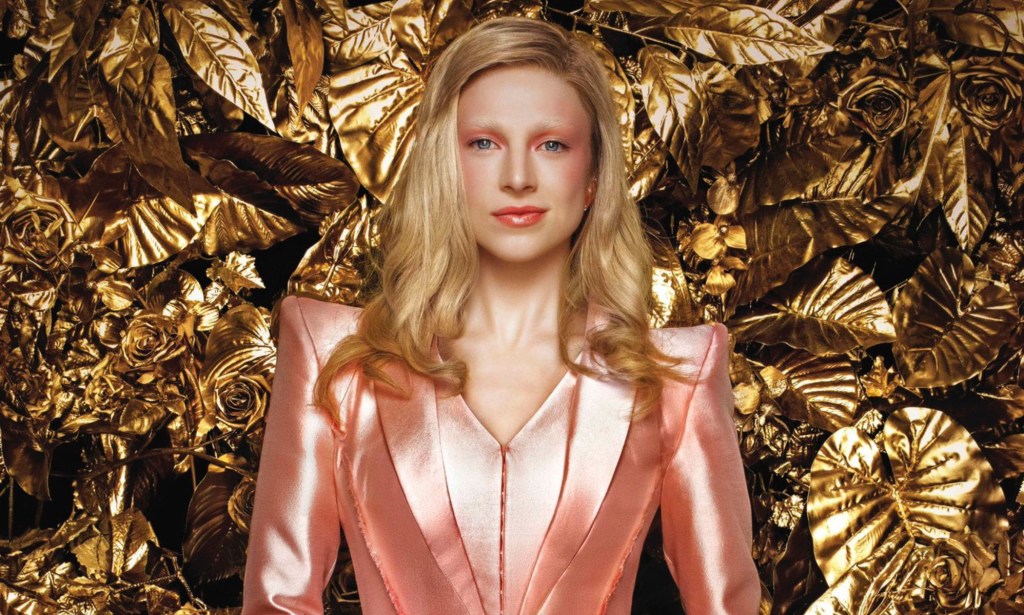
Meanwhile, Hunter Schafer shone in her first major role since her Euphoria breakthrough, starring as Tigris Snow in The Hunger Games: The Ballad of Songbirds & Snakes. In November, during an interview with PinkNews, she praised the film industry’s trans inclusion, saying: “The way Hollywood is moving with [her] community gives [her] faith that we’re headed in a good direction.”
Over in the horror genre, which has a long history of embracing, and being embraced by, the queer community, Talk To Me and Evil Dead Rise both had trans actors in the spotlight, with Zoe Terakes and Morgan Davies respectively in leading roles.
Sex Education brought the truth about being trans to mainstream TV
Five minutes into the first episode of Sex Education season four and trans character Cal Bowman (Dua Saleh) is sharing the pros and cons of being on testosterone. It’s a momentous scene in itself, educating hundreds of thousands of people about how hormones can positively change a person’s relationship with their body.
But the enlightenment didn’t stop there. New characters Abbi (Anthony Lexa) and Roman (Felix Mufti) provided additional lenses through which to share the experience of being transgender, while the final episode showed them embraced in a joyous sex scene.
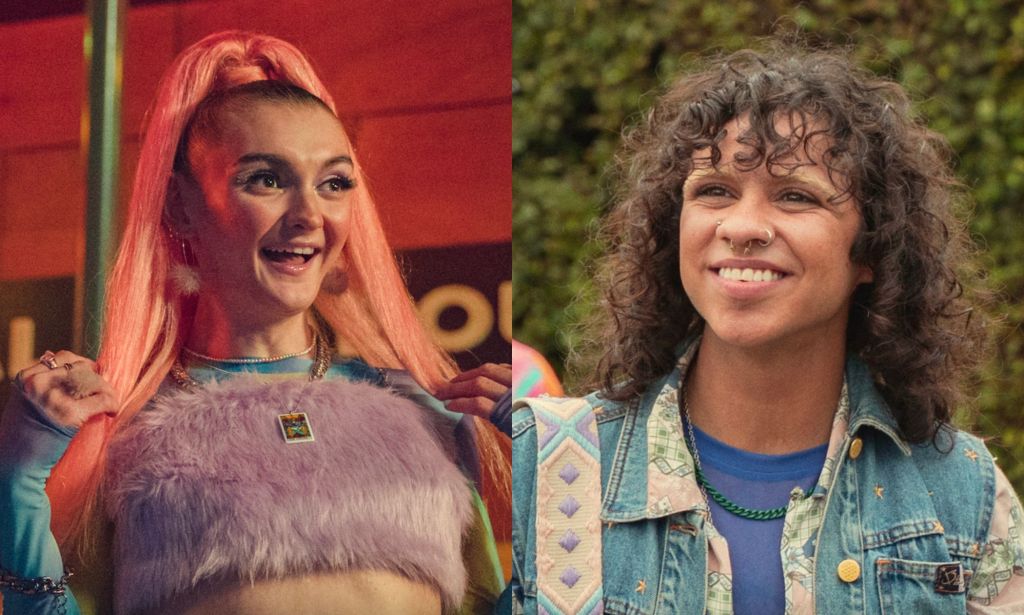
Perhaps most crucially, the season – the final one – also allowed space for conversation between Felix and Cal, with the former able to offer advice on transitioning as a trans man. They talked candidly about the waiting list times and costs of gender-affirming surgery as well as navigating familial relationships.
It’s not just representation, it’s explicit and delivered with intention, and British TV hadn’t seen anything like it before.
Queer cultural and historical icons finally had their stories told
Escaping the celebrity biopic pandemic has been tough in recent years, with Elvis Presley, Whitney Houston and Amy Winehouse having their lives and demises dramatised for our viewing pleasure.
In 2023, though, we got to look inside the lives and stories of some of the most underappreciated queer cultural icons in recent history. Expect Oscars for Bradley Cooper’s portrayal of bisexual classical music conductor Leonard Bernstein in Maestro, while Colman Domingo “invokes the spirit” of queer civil rights activist Bayard Rustin in the critically acclaimed Rustin.
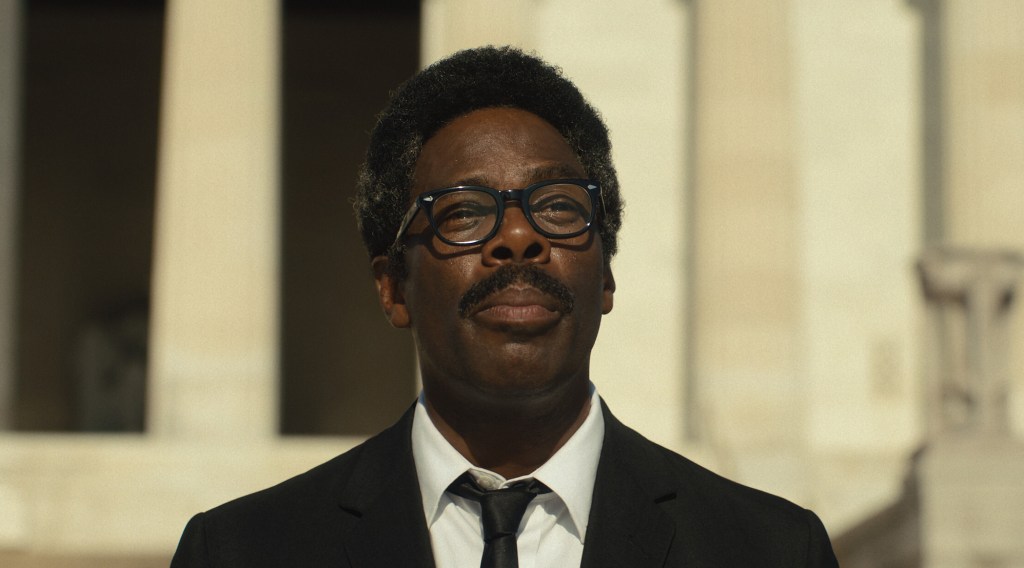
The life of a closeted gay “Hollywood hunk”, who died from and Aids-related illness at the height of the pandemic, was poignantly explored in Stephen Kijak’s documentary, Rock Hudson: All That Heaven Allowed. And a gay professional wrestler had his rise to fame explored in Cassandro, which featured a steamy gay kiss from musician Bad Bunny.
In 2024, the LGBTQ+ biopic trend looks set to continue, with Billy Porter set to immortalise American writer James Baldwin, and a new film looking into the life of “fiercely private” designer Christian Dior.
Matt Bomer and Jonathan Bailey’s steamy scenes took queer sex on screen to new levels
At the beginning of the year, queer actor Lukas Gage held the title for most audacious on-screen gay sex actor, thanks to both his golden shower scene on You and for getting rimmed by Murray Bartlett in The White Lotus.
But there are new TV kink kings in town. In October, Paramount+ mini-series Fellow Travelers saw Jonathan Bailey sucking Matt Bomer’s toes as if his life depended on it.
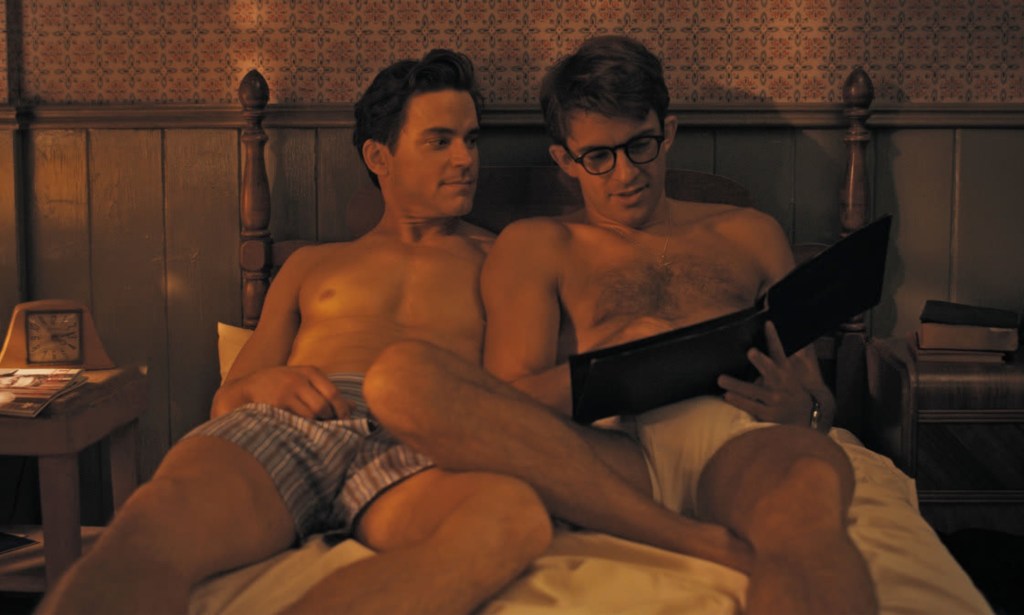
The series followed naive university graduate Tim Laughlin (Bailey) and closeted, complicated political animal Hawk Fuller (Bomer) as they fall in love across the decades, from the 1950s to the 1980s.
People may have come for the dramatic, devastating look at how vilified LGBTQ+ people were during the mid-20th century, but they stayed for the toe job.
Asexual characters started to make their way on screen
With the return of Heartstopper on Netflix in August came a sweet dose of asexual representation in the form of Isaac (Tobie Donovan).
The bookworm was left confused after friend James (Bradley Riches) admitted to having a crush on him, while he didn’t feel the same way. After coming across an art installation focused on asexual identities, Isaac experiencds a light-bulb moment. It was a clever way for the show’s creator Alice Oseman, who is asexual herself, to highlight the life-changing impact of representation.
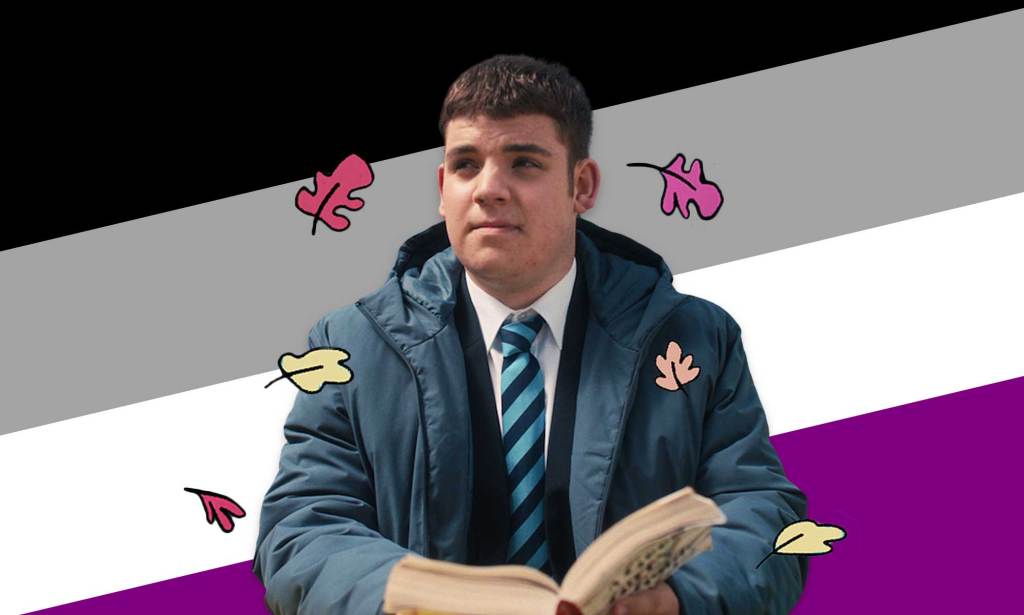
A month later, Sex Education had its own asexual character, in the form of sex therapist O (Thaddea Graham).
While the show’s asexual advisor Yasmin Benoit admitted feeling let down by the way O was presented, the very fact of her existence – particularly on a show with such a staggering audience – is worthy of celebration.
Global LGBTQ+ cinema finally got a moment to shine
Queer cinema has been shuffling its way into the mainstream for several years now, but too often the stories that get major attention are told only from a British or American standpoint. In 2023, some of the very best, and most-highly praised, LGBTQ+ films came from other parts of the globe.
Saim Sadiq’s trans love story Joyland became the first Pakistani film to be shortlisted for an Oscar, while Moroccan Arabic-language drama The Blue Caftan, which tells the story of a married tradesman falling in love with a male apprentice, also neared Oscars glory.
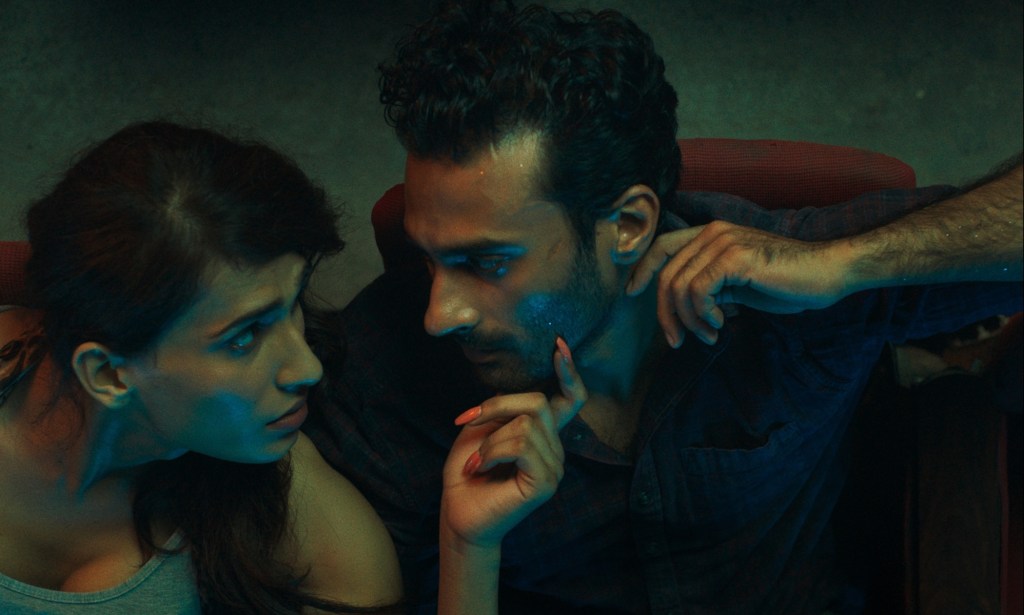
Elsewhere, Queendom followed genderqueer drag queen and activist Gena Marvin as they protested against Russia’s anti-LGBTQ+ agenda, and Close provided a heart-wrenching, Belgian coming-of-age story from Lukas Dhont.
Last but not least, The Lost Boys put an incarcerated queer Arab into fine focus, and Housekeeping for Beginners was a story of the true meaning of chosen family, set in Macedonia.
Queer-coded friends became queer-centric lovers
Two of the year’s biggest series returned, Good Omens and Our Flag Means Death, and had their lead characters move from being heavily queer-coded to actual canon queer.
In Good Omens, David Tennant and Michael Sheen’s angel and demon duo Aziraphale and Crowley took the fandom to heaven then hell, as they enjoyed a brief kiss at the end of season two – even though it ended in heartbreak.
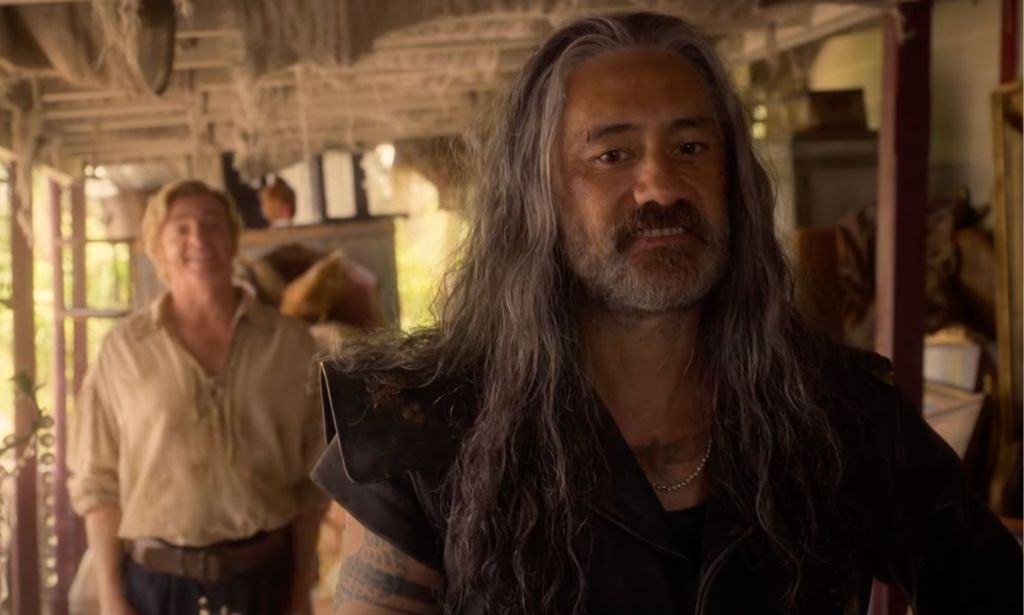
Meanwhile, in Our Flag Means Death, Stede Bonnet (Rhys Darby) set about finding his pirate pal Edward “Blackbeard” Teach (Taika Waititi), after finally realising that he is, indeed, in love with him.
Although Blackbeard started the season vowing revenge on Stede for abandoning him, (SPOLER ALERT) the pair eventually reunited, resulting in an explicitly queer relationship.
And there you have it. The best of 2023.
Let’s just hope that next year is even better.
